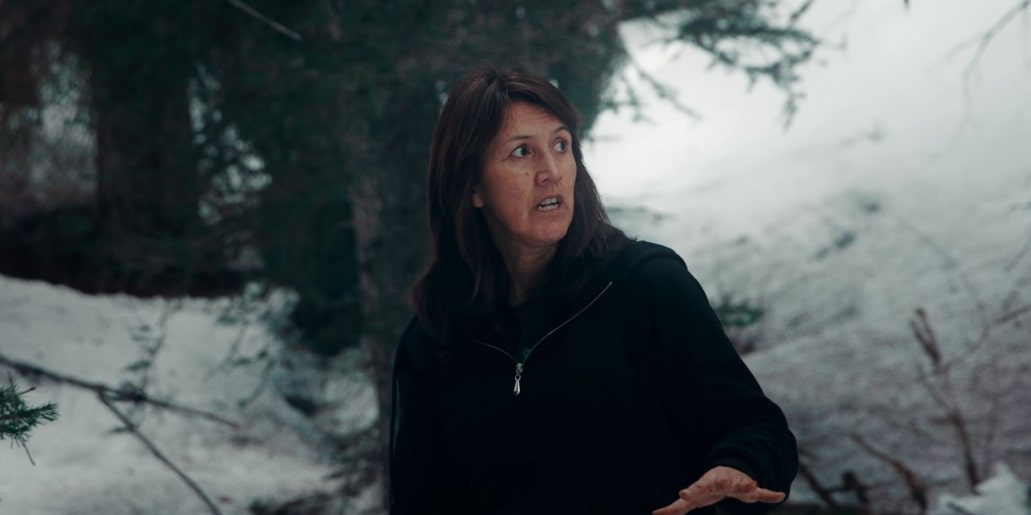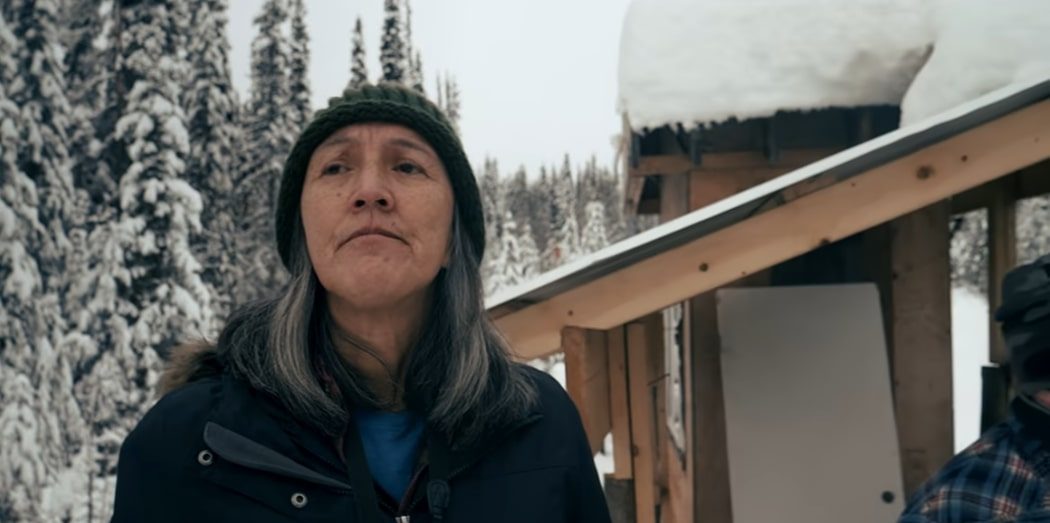Freda Huson, also known by her hereditary name Chief Howilhkat, is a formidable Indigenous leader from the Wet’suwet’en Nation in British Columbia, Canada. For over a decade, Huson has been at the forefront of one of Canada’s most important struggles for Indigenous land rights and environmental justice. Netflix’s ‘Yintah’ focuses on the battle she has been fighting while protecting the tribal lands from industrial and capitalist threats. With the advancement of pipeline projects, her efforts for Indigenous sovereignty and community empowerment are more necessary than ever.
Huson’s Passion for the Protection of Her Tribe Ignited From Personal Experiences
Huson’s connection to the Wet’suwet’en Nation runs deep. Growing up in the village of Witset (formerly Moricetown) in British Columbia, she was raised with the values of her ancestors, which prioritize stewardship of the land and cultural heritage. She witnessed the brutality of the RCMP (Royal Canadian Mounted Police) when they burnt down her grandfather’s cabin, and it instilled in her a fire to protect and save her ancestral land. The teachings of her family and community instilled in her a profound sense of responsibility toward the natural world. It was from then on that the seeds of activism were sowed in her.

In 2010, Huson co-founded the Unist’ot’en Camp, a crucial site of resistance against corporate encroachment on Wet’suwet’en territory. Located strategically along the proposed routes of several pipelines, the camp became a gathering place for land defenders, activists, and supporters. More than just a protest site, the Unist’ot’en Camp embodied the Wet’suwet’en philosophy of living in harmony with the land. Here, Huson and her allies started offering workshops, traditional teachings, and healing practices rooted in their cultural practices. The camp eventually became an emblem of Indigenous people’s right to govern and protect their lands.
The battle against the Coastal GasLink (CGL) pipeline has been one of the most defining struggles of Huson’s activism. The project, which aimed to transport natural gas across Wet’suwet’en territory, sparked intense controversy. While some band councils endorsed the project, many hereditary chiefs, including those aligned with Huson, opposed it, asserting that such developments threatened their land, water, and way of life. Their efforts concentrated on the protection of the Widzin Kwah (Morice River), as it is a source of fresh water that is a prerequisite for the salmon fish that the tribes sustain.
Freda Huson Stood Strongly Against the Corporate Takeover of Her Land
In 2019, the CGL sought an injunction order after land defenders like Huson put up barricades to block construction on unceded Wet’suwet’en land. On December 31, 2019, the British Columbia Supreme Court issued an injunction order in favor of Coastal GasLink (CGL), granting the company legal permission to access Wet’suwet’en territory to proceed with the construction of a natural gas pipeline. Huson shed tears hearing the decision, but she knew that the fight was far from over. In 2020, when the RCMP landed near the barricades to enforce the injunction., Huson stood hand-in-hand with the Chiefs and other leaders.
The confrontations were widely covered in the media, drawing national and international attention to the Wet’suwet’en cause and sparking solidarity protests across Canada and beyond. Huson was overjoyed at the support she felt coming from the entire nation. She emphasized that the fight was not just about stopping a pipeline but about affirming Indigenous rights, self-determination, and environmental stewardship. Her eloquent advocacy and clear articulation of the issues helped to frame the Wet’suwet’en struggle within the larger context of Indigenous rights and climate justice.
Freda Huson is Inspiring and Leading the New Generation Today
Freda Huson’s tireless advocacy has earned her significant recognition. In 2021, she was honored with the Right Livelihood Award, often referred to as the “Alternative Nobel Prize,” for her courageous efforts in defending Wet’suwet’en land and sovereignty. This accolade brought further international visibility to her work and efforts. As of writing, she continues to lead initiatives at the Unist’ot’en Camp, focusing on expanding educational programs and community healing practices.
Along with other leaders, she also faces legal battles and has alleged that her voice is being silenced by state oppression. She has spoken on how the ongoing struggle can cause burnout in leaders and the tribes. She is committed to fostering intergenerational knowledge and ensuring that younger Wet’suwet’en community members are equipped with the skills and understanding to continue the fight for their rights. In August 2024, an accomplished nurse organized a week-long Wilderness First Aid training at the camp. Similarly, in September, FNHA nurses from the Northern Region’s Harm Reduction and Substance Use division aided the efforts of the Healing Camp by providing Opiate Agonist Therapy training.
Such activities cultivate Indigenous practices in the daily lifestyles of the people and help them come in contact with the land they belong to. Huson’s legacy will undoubtedly inspire future generations to carry the torch of resistance, ensuring that the voices of Indigenous peoples are heard and respected in the ongoing dialogue about land, rights, and the environment. In a world facing unprecedented challenges, she stands as a powerful reminder of the strength of community, the importance of connection to the land, and the necessity of justice for all.
Read More: Molly Wickham: Where is the Gidimt’en Leader Now?


You must be logged in to post a comment.